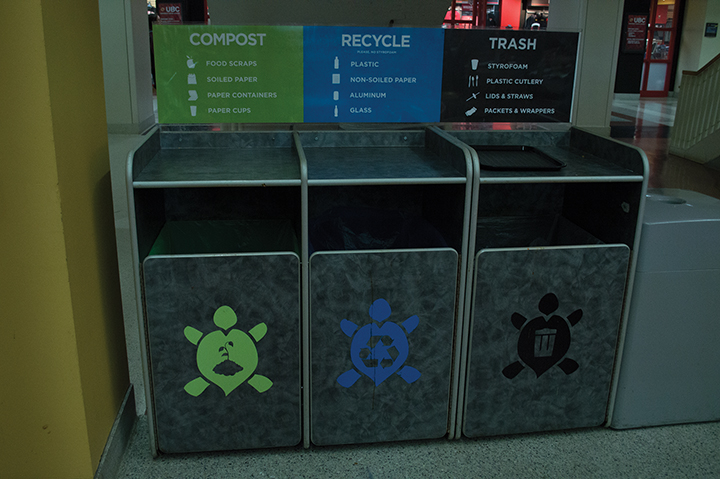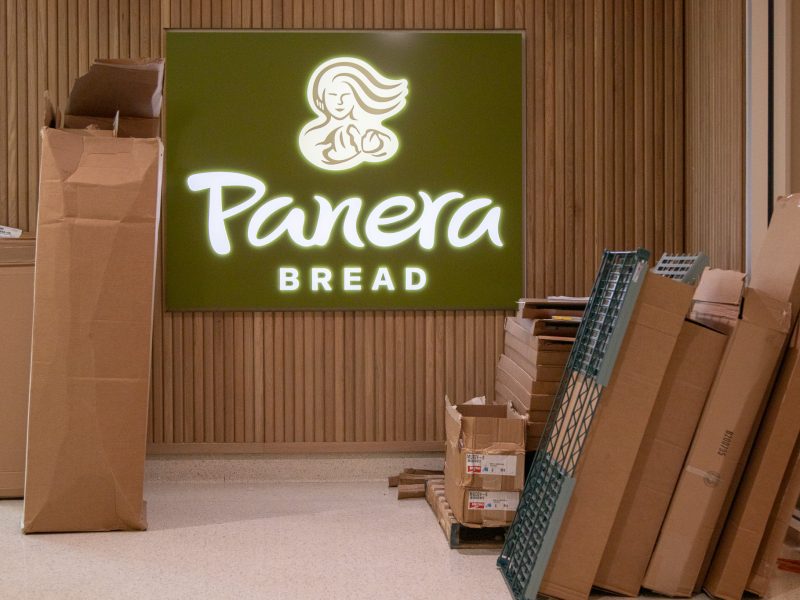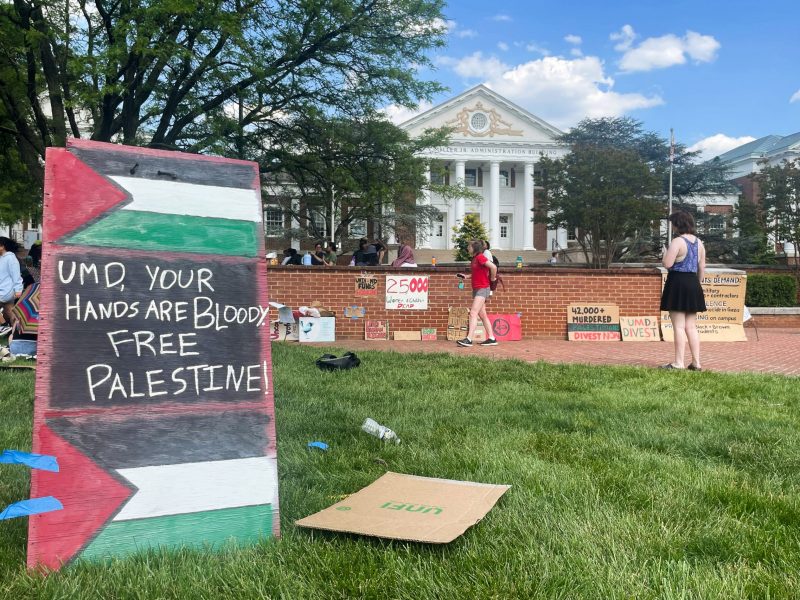University of Maryland students are working with Dining Services to better monitor and ultimately reduce food waste in the dining halls.
Twelve students from the Environment, Technology and Economy Scholars program are conducting studies to find out what food students throw away and why. These food audits are a part of a capstone project for their class, but are also part of Dining Services’ larger effort to reduce food waste, said Allison Tjaden, Dining Services assistant director of new initiatives.
Tjaden said the students have been working on the project since February, and so far they have done research about how to design the audit and implement it. The audits will be discrete on certain days and for specific meal times, she said, and the students will interact with people who are putting their trays away to sort the food waste into categories and ask people why they are throwing away those items.
[Read more: UMD’s transition to Anytime Dining has saved more than 6 million disposable products]
Right now, the students are in the process of scheduling the audits so they can collect data and write a final report by the end of the semester, Tjaden said. The two student groups from the scholars program — made up of five and seven students, respectively — will each be assigned to a different dining hall.
As part of the students’ projects, they will analyze their findings and propose solutions for the following year to reduce food waste.
“We’re also going to see if we are able to implement [the audit] again in the fall [to measure] how we improved over time,” she said. “We hope that we are going to be able to conduct these types of audits at least once a year, but even better if we can do it once a semester.”
Bart Hipple, Dining Services spokesman, said this type of independent food waste audit hasn’t been done in many years, but the new Anytime Dining system — which the university introduced in fall 2016 and eliminated take out options — made it possible to measure food waste more accurately.
“The difficulty in getting numbers about food waste before Anytime Dining is that so much of the food was carried out of our facilities,” he said.
[Read more: University of Maryland’s Terp Farm has produced nearly 30,000 pounds of food in 3 years]
Now, all food waste from the dining hall stays in the building, Hipple said, and Anytime Dining has also helped build greater student connection with the dining hall.
“[Students] see what’s going on the food return lines and what goes to the dish rooms, and they think about those things,” he said. “Because there’s no carryout, I think all of the food waste in the dining hall becomes kind of more personal.”
This stronger relationship between students and the dining halls can be one of the reasons why some students have shown more interest in combating food waste this year, Hipple said.
Students from Quest are also working to reduce food waste from the kitchen and serving area, and Dining Services has also had a long-standing relationship with students from the Integrated Life Sciences program and the Food Recovery Network, a university student group that takes leftover food from dining halls and local sporting events and donates it to hungry residents in the area, Tjaden said.
“We really have seen an increase in student interest around food waste,” she said. “We’ve seen a lot of students this semester being very interested in this topic, and working with us to improve our processes and reduce the amount of food that is wasted on campus.”
Nivetita Ravi, a senior chemical engineering major, is involved in the Food Recovery Network and the waste audit initiative. She said that educating people about their food waste is one way to address the problem.
“I think that’s really important because it is trying to create more awareness about the fact that this is food that hungry people could be getting, and we’re wasting it without really giving it a second thought,” she said.
The Food Recovery Network takes leftover food from dining halls, but Ravi said the food people waste from their plates is a different realm of waste — one which the group has not been able to fully address until now.
“I want this food audit to be on social media and things like that so people are aware that they should think about what kinds of food they’re wasting and why they’re wasting it,” she said. “That way, they can stop the problem.”
CORRECTION: Due to a reporting error, a previous version of this story incorrectly stated the name of the program as the Environment, Technology and Energy Scholars program. It is called the Environment, Technology and Economy Scholars program. This story has been updated.



